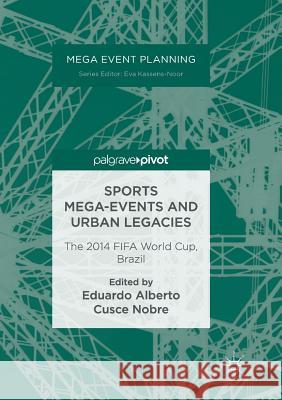Sports Mega-Events and Urban Legacies: The 2014 Fifa World Cup, Brazil » książka
topmenu
Sports Mega-Events and Urban Legacies: The 2014 Fifa World Cup, Brazil
ISBN-13: 9783319829609 / Angielski / Miękka / 2018 / 163 str.
Kategorie BISAC:
Wydawca:
Palgrave MacMillan
Seria wydawnicza:
Język:
Angielski
ISBN-13:
9783319829609
Rok wydania:
2018
Wydanie:
Softcover Repri
Ilość stron:
163
Waga:
0.22 kg
Wymiary:
21.01 x 14.81 x 0.97
Oprawa:
Miękka
Wolumenów:
01
Dodatkowe informacje:
Wydanie ilustrowane











